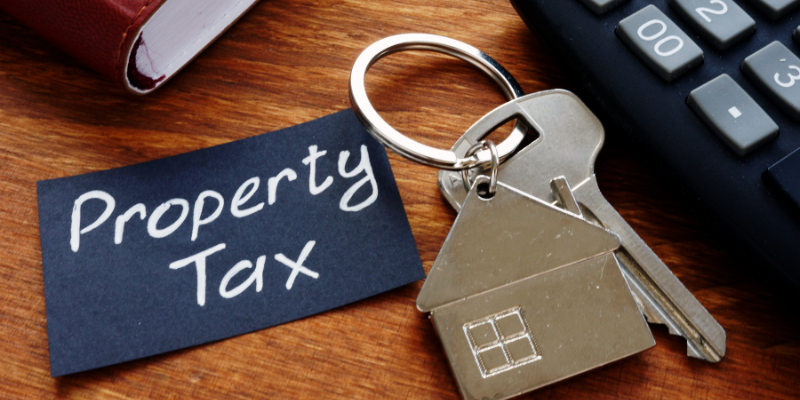
Understanding Property Tax Rates
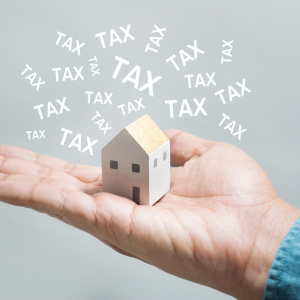
Understanding property tax rates in Garland, TX, is critical for homeowners and real estate investors to make sound decisions. Property tax rates in this area are determined by a property’s assessed value and the tax rate set by local taxing authorities, such as school districts, city governments, and county officials.
These rates are important in determining the annual property tax bill. The appraisal district assesses the market value of properties annually, which is then used to tax them.
Property owners should be aware of any changes to these assessments because they have a direct impact on their financial obligations. Understanding the various exemptions and deductions available can also help to reduce the total tax burden.
For investors in Garland’s real estate market, understanding how taxes impact cash flow and overall returns is essential. Monitoring changes in local tax rates can also provide insight into economic trends that may influence future property values and investment potential. For those looking to sell quickly, cash home buyers in Garland and surrounding Texas cities can offer a streamlined and efficient selling process.
How Property Taxes Are Calculated
Property taxes in Garland, TX, are calculated by combining the assessed value of your property with local tax rates set by various entities. The Central Appraisal District determines the market value of your property.
This valuation takes into account property size, location, and improvements. After determining a property’s market value, the appraisal district adjusts it to reflect its assessed value, which is typically a percentage of the market value.
Homeowners and real estate investors should be aware that different taxing authorities, such as school districts, city governments, and special districts, set their own tax rates each year. These rates are expressed in dollars per $100 of assessed value and can vary significantly across Garland.
To calculate your total annual property tax obligation, multiply these tax rates by your property’s assessed value. Staying up to date on changes in both assessments and tax rates is critical for homeowners and real estate investors seeking to effectively manage their financial expectations in Garland’s dynamic property market.
Factors Affecting Local Tax Rates
There are a few important things that homeowners and real estate investors in Garland, TX, should know about how property tax rates work. The local appraisal district decides the assessed value of properties, which is a big factor.
The tax rates change when property values go up or down. Local government budgets are also very important. To pay for things like schools, roads, and emergency services, the government needs a lot of money, which can cause tax rates to go up or down.
The economy in Garland also affects these rates. For example, a strong economy might mean that high tax rates aren’t needed as much because more businesses are doing business and sales tax revenue is going up. Also, state rules and limits on property taxes can affect how much money local governments can get from homeowners and investors.
Voter-approved bonds for community projects can impact property taxes, as they require funding from local tax revenues. Understanding these factors can help homeowners and real estate investors in Garland prepare for potential changes in their property-related expenses. House Buying Heros can help you navigate these considerations when buying or selling a home.
How Economic Conditions Influence Tax Rates
Economic conditions heavily influence property tax rates in Garland, TX, affecting both homeowners and real estate investors. Property values frequently rise when the local economy is thriving, as evidenced by rising employment rates and consumer spending.
This appreciation can result in higher assessed values for residential and commercial properties, leading to higher property tax rates. In contrast, during economic downturns or recessions, property values may stagnate or decline, potentially stabilizing or reducing tax obligations.
Inflation can also affect the cost of public services funded by property taxes; as these costs rise, municipalities may adjust tax rates to maintain service levels. Property values and assessments are also influenced by the real estate market’s supply and demand balance.
A strong housing market could quickly raise prices and assessments, whereas an oversupply could have the opposite effect. Local government budgets rely heavily on property taxes for revenue; thus, changes in economic conditions have a direct impact on how these taxes are levied to meet fiscal needs without burdening taxpayers.
Government Budgeting and Its Influence on Taxes
Understanding the relationship between government budgeting and property tax rates in Garland, TX, is crucial for both homeowners and real estate investors. The city’s budgetary needs significantly influence property taxes, as these taxes represent a major source of local revenue.
Property taxes fund essential services such as public education, emergency services, infrastructure maintenance, and community development projects in Garland. As the city plans its annual budget, it assesses the necessary expenditures to maintain and improve these services.
If additional funding is required for new initiatives or unforeseen expenses, property tax rates may be adjusted accordingly. Homeowners and investors need to stay informed about any proposed changes in municipal budgeting since these can directly impact their financial obligations through property taxes.
By understanding how budget allocations are determined by local government priorities and economic conditions, individuals can better anticipate fluctuations in their tax liabilities while also gaining insight into how their contributions support community growth and sustainability.
The Relationship Between School Funding and Property Taxes
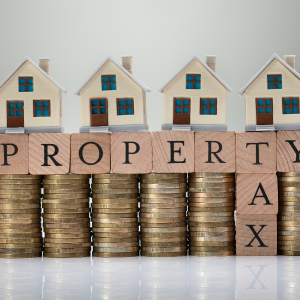
In Garland, TX, homeowners and real estate investors must understand the relationship between school funding and property taxes. Property taxes play an important role in funding local schools because they are the primary source of revenue for educational budgets.
The amount of property tax collected has a direct impact on the quality of education because it determines the funds available for teacher salaries, educational programs, facility maintenance, and technological advancements. Higher property values in Garland typically result in increased tax revenues, which can help to fund schools and improve educational outcomes.
Fluctuations in property market values can impact school budgets, so stakeholders should stay informed about changes in property tax rates and assessments. Understanding this dynamic enables homeowners and investors to anticipate how changes in property taxes will affect their financial obligations as well as the educational resources of the larger community.
Comparing Property Tax Rates Across Regions
When comparing property tax rates in different regions, Garland, TX offers a unique perspective for both homeowners and real estate investors. Property tax rates in Garland are affected by a number of factors, including local school district funding requirements, municipal services, and county mandates.
Property tax rates in Garland can vary significantly from those in neighboring areas such as Dallas or Plano due to differences in assessed property values and local government budgetary needs. Understanding these regional differences is critical for prospective buyers or investors comparing the cost-effectiveness of owning real estate in Garland to other parts of Texas.
Furthermore, while some regions may have lower property tax rates, they may also have fewer public amenities or services, which can affect the overall desirability and long-term value of properties. As a result, a thorough examination of property tax structures not only helps with financial planning but also improves strategic decision-making when considering real estate investments in the larger context of North Texas markets.
Historical Trends in Property Tax Rates
Over the years, property tax rates in Garland, TX, have experienced various fluctuations due to changes in local government budgets and economic conditions. Historically, these rates are influenced by factors such as the assessed value of properties, shifts in real estate market trends, and budgetary needs of local public services like schools and infrastructure.
In certain periods, property tax rates have increased to accommodate growing demands for improved public amenities and educational facilities. Conversely, during times of economic downturn or when there is a concerted effort to attract more homeowners and real estate investors to the area, the city has occasionally opted to stabilize or even lower property tax rates.
Understanding these historical trends is crucial for both current homeowners and potential investors as they navigate the financial landscape of owning property in Garland. By analyzing past patterns, one can better predict future changes in property taxes, which ultimately affect long-term investment strategies and homeownership costs in this region.
Evaluating the Fairness of Current Tax Policies
Evaluating the fairness of property tax policies in Garland, Texas, necessitates a thorough understanding of how these taxes affect homeowners and real estate investors. Property tax rates in Garland are determined by appraised property values, which can change due to market conditions and local government budget needs.
Homeowners frequently question whether these valuations accurately reflect their home’s true market value, as discrepancies can result in increased financial burdens. Real estate investors, too, scrutinize these reports to determine the profitability of their investments.
The fairness of current tax policies is dependent on the transparency and consistency of the appraisal process, as well as an equitable distribution of tax responsibilities among residents and businesses. Maintaining public trust in the system requires ensuring that tax rates are applied consistently across different properties while taking into account exemptions or reductions for specific groups.
Stakeholders must balance fiscal responsibility and fair taxation practices when evaluating the impact of property taxes on community services like schools, infrastructure maintenance, and emergency services.
The Impact of Property Taxes on Homeowners
In Garland, TX, property taxes have a substantial impact on homeowners by affecting the overall affordability of property ownership and their monthly housing costs. It is crucial for homeowners to comprehend the potential fluctuations in these valuations annually as a result of changes in the real estate market or local government requirements, as these taxes are computed based on the assessed value of a home.
The financial burden of a homeowner can be significantly increased by high property tax rates, which can affect everything from mortgage payments to household budgeting. It is imperative to consider property taxes when assessing the total cost of a home in Garland.
Furthermore, it is imperative that current homeowners remain informed about potential modifications to tax rates or assessments in order to anticipate changes in their annual financial obligations. Additionally, property taxes are a significant factor in determining the long-term appreciation of real estate investments, as they directly impact net returns and influence decisions regarding the purchase, sale, or further investment in the Garland area property market.
Strategies to Lower Your Property Tax Bill
There are a number of ways that homeowners and real estate investors in Garland, TX, can try to lower their property tax bill. One good way to lower your taxes is to make sure that the assessed value of your property is the same as its current market value. If it isn’t, you could end up paying more taxes.
You should check your property tax assessment every year and, if you think the value is too high, file an appeal with the local appraisal district. Also, it can be helpful to know about the exemptions that are available. For example, homestead exemptions or senior citizen exemptions can greatly lower the taxable value for owners who qualify.
It’s also important to keep track of any repairs or improvements that could change the value of your property during assessment reviews. Hiring a professional property tax consultant could help you understand the complicated tax codes better and make sure you get all the savings you can.
Understanding Homestead Exemptions and Other Deductions
For homeowners and real estate investors in Garland, TX, understanding homestead exemptions and other deductions is essential for effective property tax management. These exemptions can greatly lower the taxable value of a primary residence, leading to significant savings. If you’re planning to sell, learning how House Buying Heros works can help make the process smoother and more efficient.
In Garland, qualified homeowners can apply for a standard homestead exemption, which reduces the property’s appraised value and thus lowers the overall tax burden. Furthermore, seniors aged 65 and up, as well as disabled people, may be eligible for additional discounts through specific exemptions designed to alleviate financial stress.
Aside from homestead exemptions, Garland also provides other deductions that can help real estate investors and property owners. For example, agricultural use valuations can provide tax relief for properties that are primarily used for farming or ranching.
Understanding these various exemptions and deductions enables property owners to optimize their tax strategy while remaining compliant with local regulations. Knowing how to navigate the application process and eligibility requirements is critical for maximizing property tax savings in Garland.
What Is the Property Tax Rate in Garland, Texas?
Understanding the property tax rate in Garland, Texas, is crucial for homeowners and real estate investors making informed financial decisions. According to the most recent assessment, the property tax rate in Garland is a combination of rates levied by various taxing entities, including the city government, school districts, and county authorities.
The total property tax rate typically includes the City of Garland’s municipal rate, which funds local services like police and fire departments, as well as rates from Garland Independent School District or other relevant school districts in the area. Depending on your property’s location within Garland, Dallas County, or Collin County, their respective tax rates may also apply.
Both current residents and potential investors should check these rates on a regular basis because they can fluctuate annually depending on budgetary needs and assessments conducted by local appraisal districts. Homeowners can better plan their budgets by staying up to date on Garland’s property tax rates, while real estate investors can accurately assess the potential returns on investment properties in this vibrant Texas community.
How Much Is Property Tax on a $300,000 House in Texas?
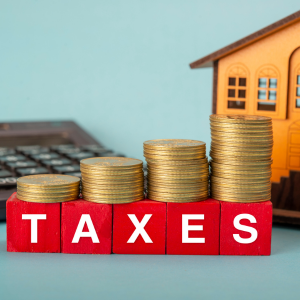
Property tax rates in Texas can be very different depending on where you live and which taxing authorities are involved. When buying a $300,000 house in Garland, TX, homeowners and real estate investors should think about the total property tax rate for the city, county, and school district.
Texas has higher property tax rates than most other states because it doesn’t have a state income tax. The average property tax rate in Garland is between 2.25% and 2.75% of the home’s assessed value.
So, if you own a $300,000 home in Garland, you can expect to pay between $6,750 and $8,250 in property taxes each year. Homeowners and real estate investors need to check these rates with their local tax offices and know how exemptions or assessment caps could affect how much property tax they owe.
When you buy or invest in property in Garland, TX, it’s important to stay up to date on changes to property tax laws or rates so you can plan your finances well.
Is It Expensive to Live in Garland, TX?
Garland, TX, has a lower cost of living than other areas of the Dallas-Fort Worth metroplex, but understanding property tax rates is critical for both homeowners and real estate investors. Property taxes in Garland can have a significant impact on overall housing costs.
The city’s property tax rate is determined by a number of factors, including assessed property values and local government budgets. While Garland’s property tax rate may be higher than in some surrounding areas, it frequently funds critical services such as schools, infrastructure, and public safety.
For homeowners, it’s important to understand how property taxes can influence monthly mortgage payments and overall affordability. Real estate investors should also evaluate how these taxes impact rental yields and long-term returns. If you need a quick sale, cash home buyers in Plano and other cities in Texas can provide a fast and straightforward solution.
Residents and investors can make informed decisions about living or investing in Garland, Texas, without feeling financially burdened.
How Do I Find Out My Property Tax Rate in Texas?
To find out how much property tax you owe in Garland, TX, or anywhere else in Texas, go to the official website of your local appraisal district. You would look at the Dallas Central Appraisal District (DCAD) website for Garland, since it covers this area.
You can find property tax rates on their site by typing in the address or the owner’s name of the property. The DCAD keeps detailed records that show property values and the tax rates set by local governments like school districts, city councils, and county governments.
Also, homeowners and real estate investors should check their annual property tax statement that the county tax assessor-collector’s office sends them. This statement shows how each jurisdiction’s tax rate is made up of different parts.
It is important to understand these rates in order to plan your future expenses and figure out how much money you might make from an investment. Talking to a local real estate expert or property tax consultant can also help you understand how property taxes change and how to take advantage of exemptions or protests that could lower your overall liability.
Helpful Garland Blog Articles
- Selling A House With Code Violations In Garland
- Capital Gains Tax On Selling A House In Garland
- Is Garland, TX Safe For Homebuyers?
- Understanding Garland, TX Property Tax Rates
- Selling An Inherited House In Garland, TX: Probate And Legal Insights
- Discover Garland, TX Neighborhoods: A Comprehensive Real Estate Guide
- Prevent House Foreclosure In Garland, TX
- Fascinating Real Estate Facts About Garland, TX
- Free Real Estate And Housing Activities In Garland, TX
- Top-rated Property Managers For Homes In Garland, TX
- Family-friendly Activities And Real Estate Insights In Garland, TX
- Guide To Selling Your Parents’ House In Garland, TX
- Do You Need A Lawyer To Sell Your Home In Garland, Texas?
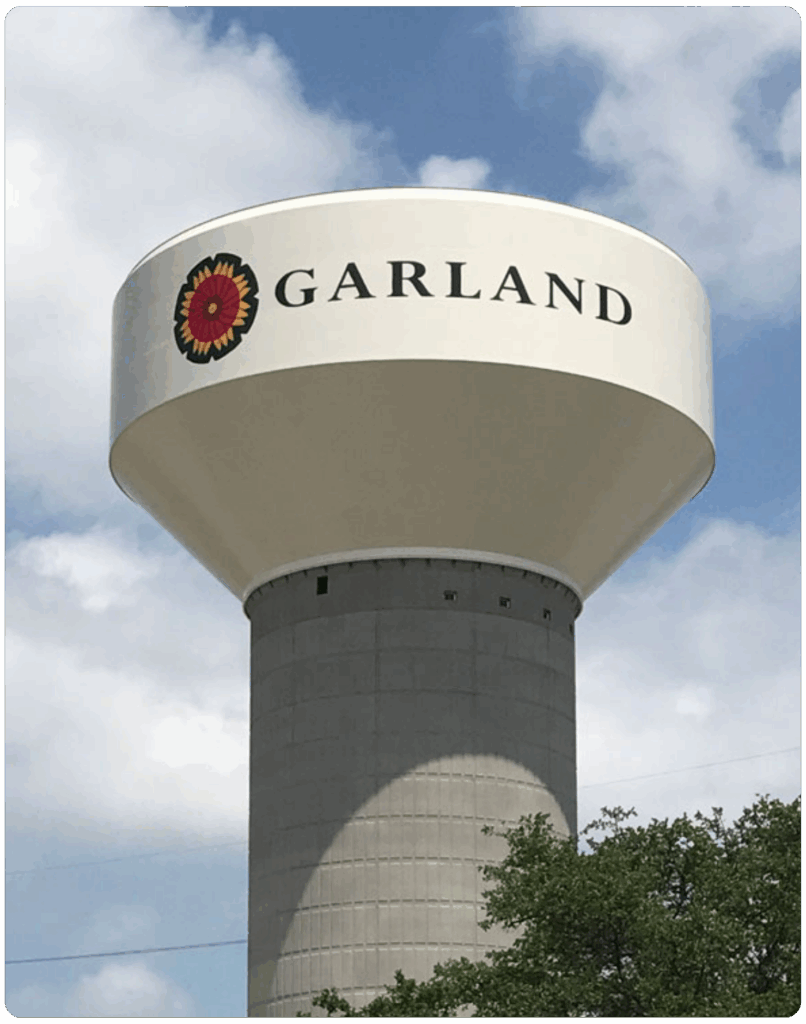
| TAX BASED | TAX PAYMENT | EFFECTIVE TAX RATE | COLLIN COUNTY, TX | COLLIN COUNTY, TEXAS | MEDIAN HOME PRICE |
| U.S. | MEDIAN | CALCULATOR | MEXICAN | MEXICO | GARLAND ISD |
| FISCAL YEAR | ZIP CODE | CALCULATION |
